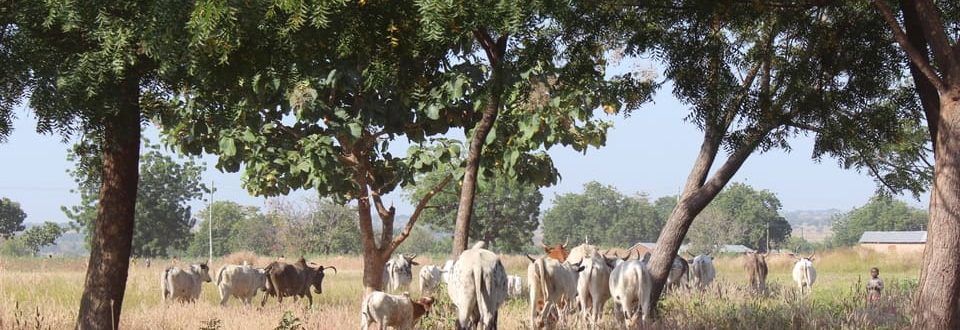Date Issued: Aug 7,2018
Ghana has over the last few years been battling with conflicts between herdsmen and crop farmers which sometimes result in fatalities on both sides. The conflict is primarily about resource use, damage to crops and water bodies by cattle, non-existence of regulated transhumant corridors and crop farming along the valleys of stream/river banks.
There was therefore an urgent need to find a lasting solution to this perennial conflict and ensure that adequate water and feed resources are available for livestock, herdsmen adhere strictly to lay down regulations and crop farmers reap what they have sown for food security and income generation.
With the absence of effective pastoral policy, and the strive to achieve the primary Sustainable Development Goal of “eradicating poverty in all its forms everywhere” there is therefore the urgent need for a legal framework on Cattle Ranching to outline practical, implementable and permanent solutions to the end the perennial conflict between the set of farmers whiles promoting food security.
With funding support from Business Sector Advocacy Challenge (BUSAC) Fund, Peasant Farmers Association of Ghana (PFAG) held a sensitization workshop at Kintampo in the Brong Ahafo and Kwahu Tafo in the Eastern regions of Ghana respectively to share the proposal for a draft Ghana Pastoral Policy with key actors in the pastoral value chain to enhance their knowledge of the proposed strategies to deal with the conflicts.
In his presentation of the draft policy, the lead consultant, Dr. Kwame Oppong, who also doubles as the Chairman of the Ghana Cattle Ranching Project Committee highlighted twelve intervention areas that will form the basis of the Cattle Ranching Law. Among them was establishment of appropriate pastoral corridors taking into the consideration the usual path of livestock movements, availability of resources and pastoral infrastructure while avoiding cropping lands. Appropriate compensation will be paid to farmers who will be affected by the demarcation of corridor/entry points for cattle ranching,” he added
Imam Hanafi Sonde, the Chairman of Ghana National Association of Cattle Farmers (GNACAF) expressed satisfaction and readiness of their members to abide by the proposals and called for unity and mutual respect among crop and cattle farmers. He was optimistic that the implementation of the strategies will lead to an end to the conflicts and promote farming activities in the country.
The Programme Officer of PFAG, Mr. Bismark Owusu Nortey was confident that government will quickly adopt the proposals and begin its implementation to avert any conflicts in the near future. He added that a stakeholders’ workshop will be organized to validate the drat policy and presented to government for quick action.
In March 2017, a Cattle Ranching Committee was inaugurated to find lasting solutions to the perennial challenges of transhumance and crop farmers’ conflicts and develop well tested strategies to improve domestic cattle ranching.
The committee held series of deliberations aimed at developing appropriate strategies to tackle the challenges of transhumance.
The sector Minister in charge of Food and Agriculture, Dr. Owusu Afriyie Akoto said numerous attempts had been made in the past to solve the challenges of transhumance in the cattle stressing that Ghana can no longer fail to develop and implement lasting solution to the challenges and develop the country’s domestic cattle industry.


leave a comment
You must be logged in to post a comment.